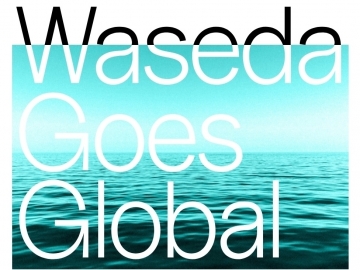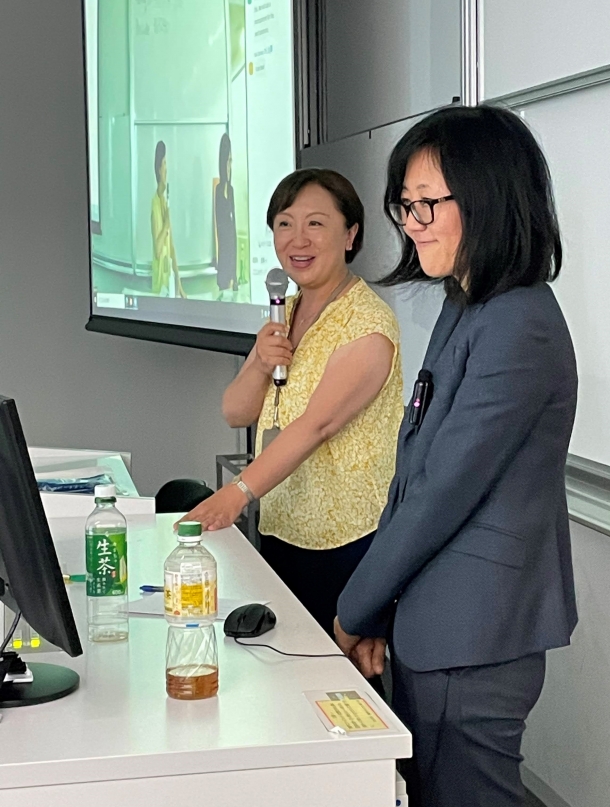
Associate Professor Yuriko Takahashi (left), the seminar organizer and a TGU project member, introduces Associate Professor Megumi Naoi
On June 30, the Center for Positive/Empirical Analysis of Political Economy organized the seminar entitled “How Embedded Liberalism Failed: Stimulus Resentment and the Rise of Protectionism in the United States” by Prof. Megumi Naoi (Associate Professor, University of California, San Diego).
This year, Prof. Naoi, who has a joint appointment (JA) with Waseda University, gave an intensive course “What We Know and Don’t Know about Globalization and Domestic Politics” at the Waseda Campus during the summer quarter. This course intends not only for students to acquire basic knowledge through intensive reading on the classical and contemporary works on international political economy, but also give the students an opportunity to develop their own research on international political economy.
Prof. Naoi, a leading international researcher in the field of international political economy, presented her ongoing research on part of her second book, Voting with the Wallet: Consumers, Income-earners and the New Politics of Voting with the Wallet: Consumers, Income-earners and the New Politics of Globalization Backlash. In the seminar, she explained how the regional allocation of the American Recovery and Reinvestment Act (ARRA), which was implemented under the Obama administration as a response to the Lehman Shock of 2008, amplified the resentment of voters who did not benefit from the government’s economic stimulus programs in a country where political polarization is increasing, resulting in a backlash against “big government” and the rise of protectionism, especially among Republican supporters.
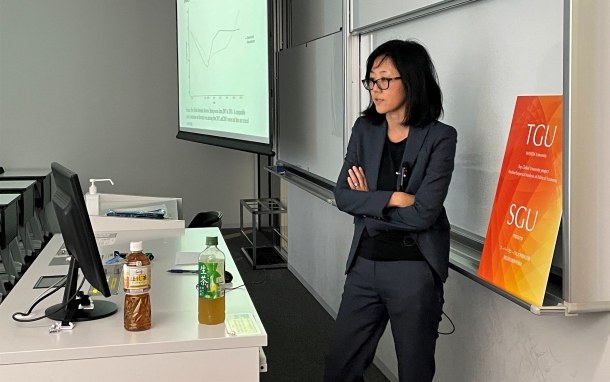
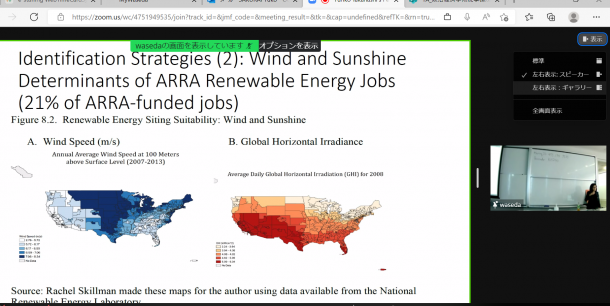
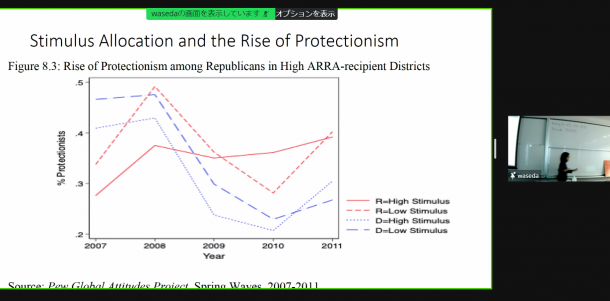
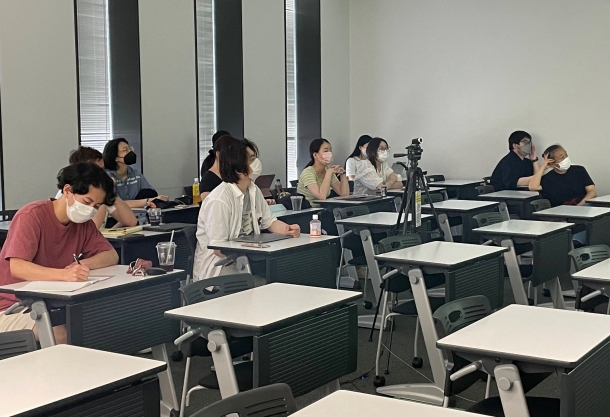
Based on rigorous causal inference, her presentation of research convincingly showed how the “Embedded Liberalism,” the logic that supported postwar U.S. economic liberalism, no longer work, stimulating a lively Q&A session among the nearly 50 participants who had attended the seminar either in-person or online. Participants asked questions on the method of causal identification, the origin of resentment exacerbated by the stimulus package and measures to mitigate it, the mechanism linking resentment and protectionism, and other issues. Prof. Naoi provided clear answers to these questions, and participants were able to go beyond the content of the research report to deepen their understanding of the factors behind ongoing global trade protectionism.
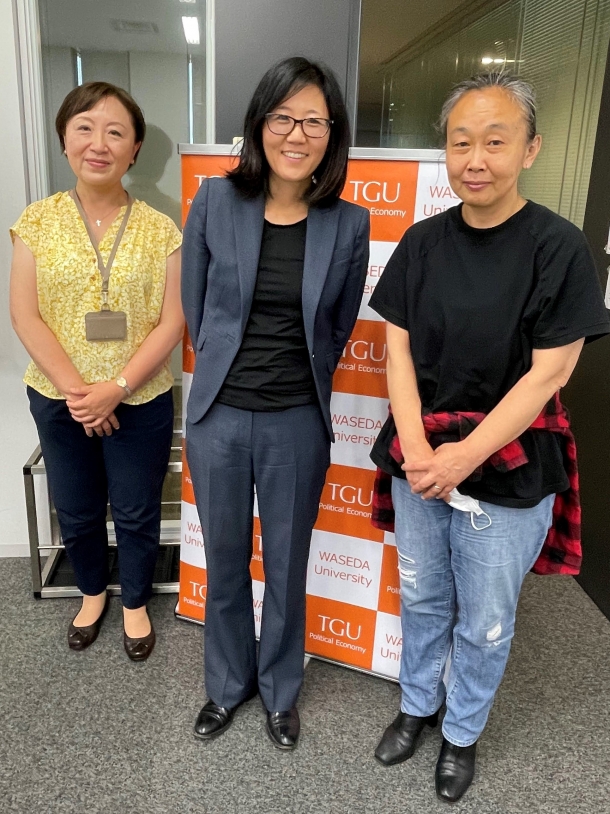
TGU project leader and Professor Haruko Noguchi (right), Associate Professor Megumi Naoi (center) and Associate Professor Yuriko Takahashi (left)
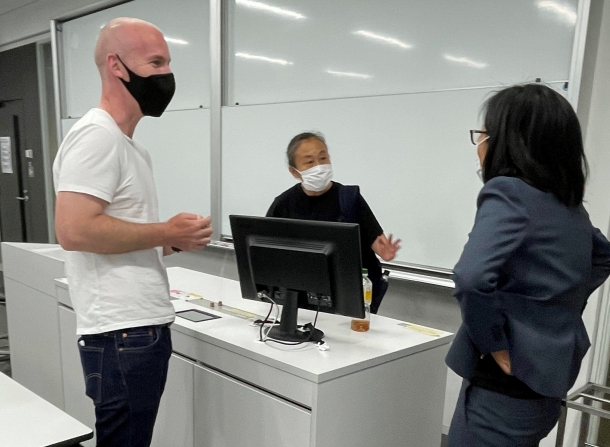
(From right to left) Associate Professor Megumi Naoi, Professor Haruko Noguchi and Associate Professor Jack Seddon
Abstract
This study demonstrates that the rise of protectionist sentiment among Republican voters is rooted in stimulus allocation during the Great Recession. I leverage project-level, geo-referenced stimulus allocation data under the Obama administration’s American Recovery and Reinvestment Act (ARRA) merged with nationally-representative survey data before, during and after the stimulus deployment. The difference-in-differences estimates suggest that it is not scarcity of government-funded jobs that gave rise to protectionism among Republican voters. Rather, protectionism emerged in response to credit-claiming by the Obama administration that came with more generous allocation of ARRA-funded jobs. I devise two identification strategies, one that leverages variations in states’ compliance to the Federal Highway Administration’s order to install road signs for the ARRA-funded infrastructural projects and a second that utilizes the allocation of ARRA-funded jobs in the renewable energy sector based on solar and wind-generation suitability factors. The results lend support to the causal effect of stimulus allocation on the rise of protectionism during the Great Recession.


